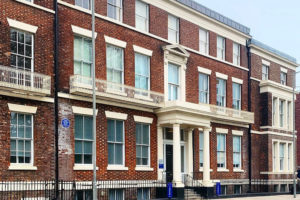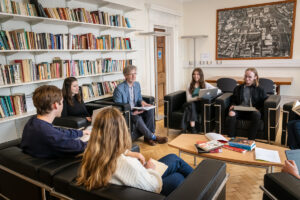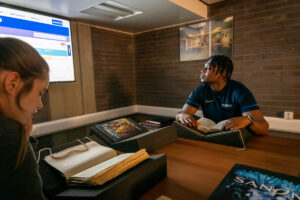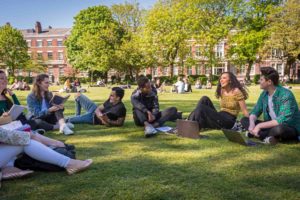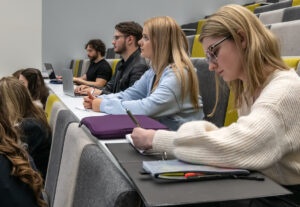Year two focuses on the major periods of English Literature and core aspects of English Language study. Modules available examine the literature of specific historical periods, eg the Renaissance, Victorian, or modernist, or areas of language study including child language acquisition or psycholinguistics.
You can choose to study 100% of your modules in English Literature or English Language (120 credits) or study either discipline in a 50:50 (60 credits in both) or 75:25 (90/30 credits) combination.
If you choose to study English language, you will have the freedom to choose your modules, up to the number of credits within the proportion you’ve selected.
To provide you with exposure to a variety of literary periods, the English Literature modules have been grouped. Depending on the proportion of literature modules you decided to pursue will determine which optional modules you select.
Notice
If you opt to study 100% literature, you can pick one module from each group, along with one additional module from any group.
Studying 75% literature, will allow you to choose one module from each group.
If you select 50% literature, you will choose one module from group one and one from either group two or three.
Studying 25% literature allows you to choose one module from any group.
On the 2+2 programme, you'll study your third and fourth years at the University of Liverpool. These will be year two and year three of the University of Liverpool's programme of study.
Programme details and modules listed are illustrative only and subject to change.

